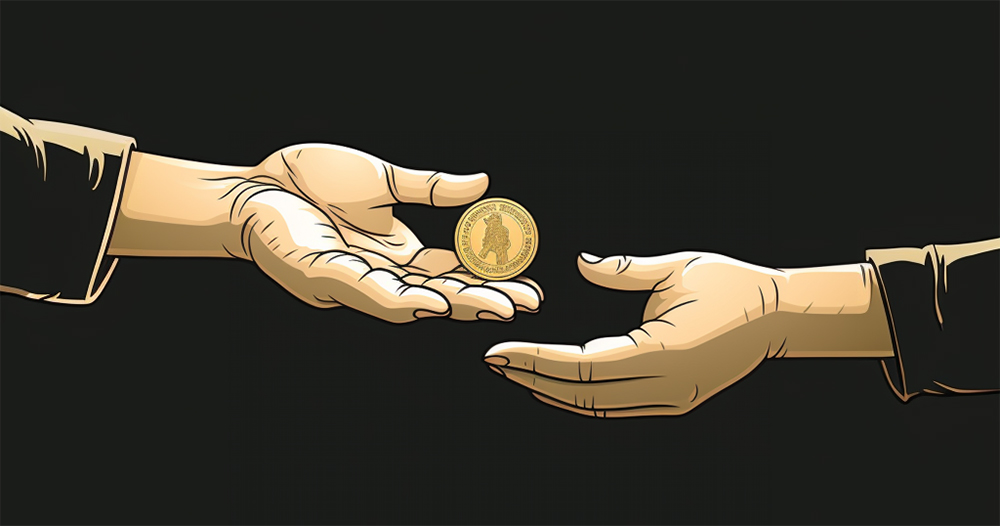In the ever-evolving landscape of finance, one term has been making waves like never before: cryptocurrency. So, what is cryptocurrency? It’s a revolutionary form of digital or virtual currency that uses cryptography for security. But why should you care? Well, in a world that’s rapidly digitizing, understanding the ABCs of cryptocurrency can give you a competitive edge. Whether you’re an investor eyeing the next big thing, or simply curious about how this digital currency could change the world, this article is your go-to guide. We’ll delve into everything from the basics to the complexities, all while keeping it simple and straightforward. So, let’s embark on this journey to decode what is cryptocurrency and why it might just be the future of finance.
Did You Know?: As per Wikipedia, Satoshi Nakamoto, an unidentified individual or collective, launched Bitcoin in 2009 as the inaugural decentralized cryptocurrency.
Table of contents
The Fundamentals of Cryptocurrency
First off, cryptography. This is the bedrock of what makes cryptocurrency secure. Cryptography converts sensitive data into a secure, unreadable format to safeguard it from unauthorized access. Only someone with a special key can decode it. Within the realm of cryptocurrencies, this technology fortifies transactional integrity and shields your digital holdings from potential cyber-attacks.
Decentralization: The Backbone of Crypto
Next up, decentralization. In contrast to conventional currencies governed by centralized financial institutions, cryptocurrencies operate on a decentralized framework. Here, no single authority holds sway. Transactions take place directly between participants and gain validation from a network of nodes, thanks to cryptographic techniques. Wondering how crypto functions within this decentralized setup? The answer lies in a groundbreaking technology known as blockchain, which we’ll explore further in a moment.
Blockchain Technology
Last but not least in this section, blockchain technology. Imagine a public ledger that’s accessible to anyone but is virtually impossible to tamper with. That’s blockchain for you. It’s what keeps track of all cryptocurrency transactions. It’s transparent, secure, and plays a pivotal role in keeping the system decentralized.

How does cryptocurrency work with blockchain? Well, each transaction made with cryptocurrency is added to this public ledger, verified by multiple sources to ensure its authenticity. It’s like a self-auditing system where each transaction is cross-referenced against existing records, ensuring maximum security.
Types of Cryptocurrencies
So, you’ve got the basics down, but let’s not put all our eggs in one basket. When people hear the term “cryptocurrency,” they often think of Bitcoin. But hold your horses, the world of crypto is much more diverse. Let’s explore the different types of cryptocurrencies that have sprung up on the digital landscape.
Bitcoin: The Pioneer
Bitcoin, the one that started it all. Created in 2009 by the mysterious Satoshi Nakamoto, Bitcoin was the first cryptocurrency and remains the most well-known and valuable. It set the stage for what digital currency could be, offering a decentralized, secure, and transparent way to conduct transactions.
Altcoins: Beyond Bitcoin
Now, let’s talk Altcoins. These are essentially alternatives to Bitcoin. Think of them as the Pepsi to Bitcoin’s Coca-Cola. Some popular Altcoins include Ethereum, Ripple, and Litecoin. Each has its unique features and uses. For instance, Ethereum allows for smart contracts, while Ripple is known for its digital payment protocol more than its digital currency, XRP.
Did You Know?: As of 2023, there are over 9,000 different cryptocurrencies according to CoinMarketCap.
Tokens: Utility, Security, and Governance
Lastly, let’s discuss Tokens, which diverge from standard cryptocurrencies in a key way. While coins exist on their own unique blockchains, tokens operate atop pre-existing blockchain infrastructures, such as Ethereum.Tokens can represent anything from a physical object to access rights, to services provided by a decentralized application.
What are cryptocurrencies if not diverse, right? From the pioneering Bitcoin to the myriad of Altcoins and specialized tokens, the crypto landscape is as varied as it is vast. So, whether you’re looking to invest or simply understand what is crypto money, knowing the types is a good place to start.
How to Acquire Cryptocurrency
Alright, you’re all clued up on what cryptocurrency is, but how do you get your hands on it? Don’t worry, we’ve got you covered. Acquiring cryptocurrency isn’t as daunting as it might seem. Let’s break it down step-by-step.
Crypto Exchanges: Your Gateway
First stop, Crypto Exchanges. Think of these as the stock markets of the crypto world. Platforms like Coinbase and Binance allow you to buy, sell, and trade various cryptocurrencies. All you need to do is sign up, go through some basic verification, and you’re good to go.
Investment Vehicles
If you’re not keen on owning the actual cryptocurrencies but still want a piece of the action, Investment Vehicles like Trusts, ETFs, and Futures are your best bet. These financial products allow you to invest in cryptocurrency without having to buy and store it.
Peer-to-Peer Transactions
Last but not least, Peer-to-Peer Transactions. This is the most direct way to acquire cryptocurrency. You can buy it from someone who already owns some. While this method bypasses the need for an exchange, it also comes with its own set of risks, like fraud.

How does cryptocurrency work when buying peer-to-peer? It’s simple. The seller sends the specified cryptocurrency amount to your electronic wallet, and you pay them using a method you both agree on, like cash or a bank transfer.
So, whether you’re a high-roller looking to invest big or a casual enthusiast, there’s a method to acquire cryptocurrency that suits your needs. Ready to take the next step?
Legal Landscape
Navigating the crypto waters can be thrilling, but it’s not all smooth sailing. The legal landscape around cryptocurrency is still a work in progress, varying from one jurisdiction to another. Let’s delve into what you need to know to stay on the right side of the law.
Cryptocurrency in the United States
Firstly, let’s focus on the United States. In this jurisdiction, cryptocurrencies typically fall under the category of property instead of being recognized as currency. This distinction carries tax ramifications, as profits earned from buying or selling cryptocurrencies come under the purview of capital gains tax.
Global Legal Status
Now, let’s take a global view. Global Legal Status varies dramatically. In some countries like Japan, cryptocurrency is accepted and regulated. In others like China, it’s banned altogether. And then there are countries like India, where the legal status is still up in the air.
Did You Know?: Japan was one of the first countries to recognize cryptocurrency as a legal payment method, according to Wikipedia.
Regulatory Risks
Last but not least, Regulatory Risks. As governments around the world grapple with how to regulate this new form of currency, laws can change rapidly. This could impact everything from how you use and invest in cryptocurrencies to how they are taxed.
How does the law perceive cryptocurrency? It’s an ever-changing landscape. Staying updated on legal nuances is vital, both for adhering to regulations and for making educated investment choices.
Therefore, prior to plunging into the crypto universe, ensure you have a firm grasp on the legal environment you’re navigating.
Risks and Safety Measures
While the world of cryptocurrency offers a plethora of opportunities, it’s not without its pitfalls. But fear not, for every risk, there’s a safety measure you can take. Let’s dive into what you need to watch out for and how to protect yourself.
Volatility: A Double-Edged Sword
First on the list is Volatility. Cryptocurrencies are notoriously volatile. One minute you’re on cloud nine, and the next, you’re scraping the bottom of the barrel. But volatility isn’t necessarily a bad thing, it can offer investment opportunities if you play your cards right.
Security Concerns
Next, we have Security Concerns. While cryptocurrencies use advanced cryptography, they’re not 100% immune to hacking. That’s where the choice between hot wallets (internet-connected) and cold wallets (offline) comes into play. Cold wallets, while deemed more secure, aren’t as handy for regular trades.
Scams and How to Avoid Them
Last but not least, Scams. Within the cryptocurrency sphere, deceptive practices like Ponzi schemes and sham Initial Coin Offerings (ICOs) are unfortunately not uncommon. The cornerstone of sidestepping such pitfalls is thorough investigation. Make it a rule to scrutinize thoroughly before committing any funds and remain skeptical of deals that sound excessively advantageous.

How does cryptocurrency work when it comes to scams? Scammers often use social engineering tricks to deceive people into sending them cryptocurrencies. Always double-check addresses and confirm details before making a transaction.
So, while the crypto journey is filled with promise, it’s essential to tread carefully. Being aware of the risks and taking appropriate safety measures can make all the difference.
FAQ
Coins are native to their own blockchain, while tokens are built on existing blockchains. In simpler terms, think of coins like Bitcoin as the original soundtracks, and tokens like Ethereum’s ERC-20 as the remixes.
The legal status varies by country and is still evolving. In some places, it’s fully regulated and accepted, in others, it’s banned or in a legal gray area. Always check your local laws before diving in.
You can buy through exchanges, brokers, or peer-to-peer platforms. Each method has its pros and cons, so choose the one that fits your needs best.
While it holds potential, the asset class is highly volatile and fraught with risks. Exercise meticulous research and evaluate your financial standing before diving in.
In the United States, cryptocurrencies fall under the asset category for taxation. Consequently, any profits or deficits incurred from trading or selling are liable to capital gains tax.
Indeed, although merchant acceptance is still evolving. An increasing number of businesses are beginning to accept digital currencies, even if they haven’t reached the ubiquity of conventional money just yet.
Conclusion
Firstly, let’s talk about the Future of Cryptocurrency. With advancements in blockchain technology and increasing mainstream acceptance, cryptocurrencies are poised for significant growth. Whether it’s the rise of decentralized finance (DeFi) or the adoption of crypto by major corporations, the future looks bright.
Cryptocurrency isn’t just a financial instrument, it’s a paradigm shift. It challenges traditional financial systems and opens up new avenues for global commerce. So, is cryptocurrency right for you? Only you can answer that, but armed with the knowledge from this article, you’re well-equipped to make an informed decision.






